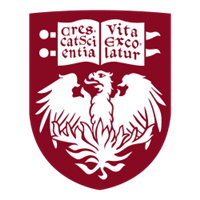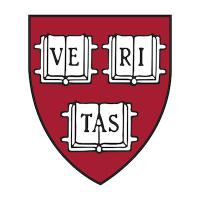What do they do?
Study the origin, development, and behavior of human beings. May study the way of life, language, or physical characteristics of people in various parts of the world. May engage in systematic recovery and examination of material evidence, such as tools or pottery remaining from past human cultures, in order to determine the history, customs, and living habits of earlier civilizations.
Also known as:
American Indian Policy Specialist, Applied Anthropologist, Applied Cultural Anthropologist, Archaeologist, Forensic Anthropologist, Historical Archaeologist, Research Anthropologist, Research Archaeologist, Researcher
-
0%
Change
Ranks #39 in job growth rate0Job Openings
Ranks #46 in net job growth
-
University of Chicago
Chicago, IL
-
New York University
New York, NY
-
University of Massachusetts-Amherst
Amherst, MA
-
Harvard University
Cambridge, MA
-
Tulane University of Louisiana
New Orleans, LA
Looking for colleges that offer a specific major? Use the College Match Tool to find your best-matched schools and discover your estimated Net Price!
- Doctorate or Professional Degree (16%)
- Master's degree (42%)
- Bachelor's degree (34%)
- Associate's degree (4%)
- Some college, no degree (3%)
- High school diploma equivalent (1%)
- Less than high school diploma (1%)
Most Popular Majors that prepare Anthropologists and Archeologists
-
#1
-
Degrees Granted
11
-
Female Students
4
-
Male Students
7
-
Median Starting Salary
$44,181
-
-
#2
-
Degrees Granted
7
-
Female Students
6
-
Male Students
1
-
Median Starting Salary
$39,900
-
-
#3
-
Degrees Granted
7
-
Female Students
1
-
Male Students
6
-
Median Starting Salary
$47,533
-
-
#4
-
Degrees Granted
7
-
Female Students
3
-
Male Students
4
-
Median Starting Salary
$39,900
-
-
#5
-
Degrees Granted
5
-
Female Students
2
-
Male Students
3
-
Median Starting Salary
$47,533
-
People in this career often have these skills:
- Reading Comprehension - Understanding written sentences and paragraphs in work-related documents.
- Writing - Communicating effectively in writing as appropriate for the needs of the audience.
- Active Listening - Giving full attention to what other people are saying, taking time to understand the points being made, asking questions as appropriate, and not interrupting at inappropriate times.
- Speaking - Talking to others to convey information effectively.
- Critical Thinking - Using logic and reasoning to identify the strengths and weaknesses of alternative solutions, conclusions, or approaches to problems.
- Monitoring - Monitoring/Assessing performance of yourself, other individuals, or organizations to make improvements or take corrective action.
- Complex Problem Solving - Identifying complex problems and reviewing related information to develop and evaluate options and implement solutions.
- Active Learning - Understanding the implications of new information for both current and future problem-solving and decision-making.
- Learning Strategies - Selecting and using training/instructional methods and procedures appropriate for the situation when learning or teaching new things.
- Instructing - Teaching others how to do something.
- Judgment and Decision Making - Considering the relative costs and benefits of potential actions to choose the most appropriate one.
People in this career often know a lot about:
- Sociology and Anthropology - Knowledge of group behavior and dynamics, societal trends and influences, human migrations, ethnicity, cultures, and their history and origins.
- History and Archeology - Knowledge of historical events and their causes, indicators, and effects on civilizations and cultures.
- English Language - Knowledge of the structure and content of the English language including the meaning and spelling of words, rules of composition, and grammar.
- Geography - Knowledge of principles and methods for describing the features of land, sea, and air masses, including their physical characteristics, locations, interrelationships, and distribution of plant, animal, and human life.
- Education and Training - Knowledge of principles and methods for curriculum and training design, teaching and instruction for individuals and groups, and the measurement of training effects.
People in this career often have talent in:
- Written Expression - The ability to communicate information and ideas in writing so others will understand.
- Written Comprehension - The ability to read and understand information and ideas presented in writing.
- Inductive Reasoning - The ability to combine pieces of information to form general rules or conclusions (includes finding a relationship among seemingly unrelated events).
- Oral Comprehension - The ability to listen to and understand information and ideas presented through spoken words and sentences.
- Oral Expression - The ability to communicate information and ideas in speaking so others will understand.
- Deductive Reasoning - The ability to apply general rules to specific problems to produce answers that make sense.
- Speech Clarity - The ability to speak clearly so others can understand you.
- Information Ordering - The ability to arrange things or actions in a certain order or pattern according to a specific rule or set of rules (e.g., patterns of numbers, letters, words, pictures, mathematical operations).
- Category Flexibility - The ability to generate or use different sets of rules for combining or grouping things in different ways.
- Flexibility of Closure - The ability to identify or detect a known pattern (a figure, object, word, or sound) that is hidden in other distracting material.
- Speech Recognition - The ability to identify and understand the speech of another person.
- Near Vision - The ability to see details at close range (within a few feet of the observer).
- Fluency of Ideas - The ability to come up with a number of ideas about a topic (the number of ideas is important, not their quality, correctness, or creativity).
People in this career often do these activities:
- Collect information from people through observation, interviews, or surveys.
- Conduct anthropological or archaeological research.
- Prepare scientific or technical reports or presentations.
- Inspect condition of natural environments.
- Advise others about environmental management or conservation.
- Mark materials or objects for identification.
- Package materials or products.
- Plan social sciences research.
- Direct scientific activities.
- Collect biological specimens.
- Record research or operational data.
- Collect archival data.
- Evaluate characteristics of archival or historical objects.
- Conduct research on social issues.
- Train personnel in technical or scientific procedures.
- Clean objects.
- Document events or evidence, using photographic or audiovisual equipment.
- Design psychological or educational treatment procedures or programs.
- Advise others on matters of public policy.
- Collaborate with technical specialists to resolve design or development problems.
- Communicate with government agencies.
- Conduct scientific research of organizational behavior or processes.
- Plan community programs or activities for the general public.
- Develop theories or models of social phenomena.
- Conduct historical research.
- Apply knowledge or research findings to address environmental problems.
- Advise others on educational matters.
- Analyze forensic evidence to solve crimes.
This page includes data from:

 Occupation statistics: USDOL U.S. Bureau of Labor Statistics Occupational Employment Statistics
Occupation statistics: USDOL U.S. Bureau of Labor Statistics Occupational Employment Statistics









